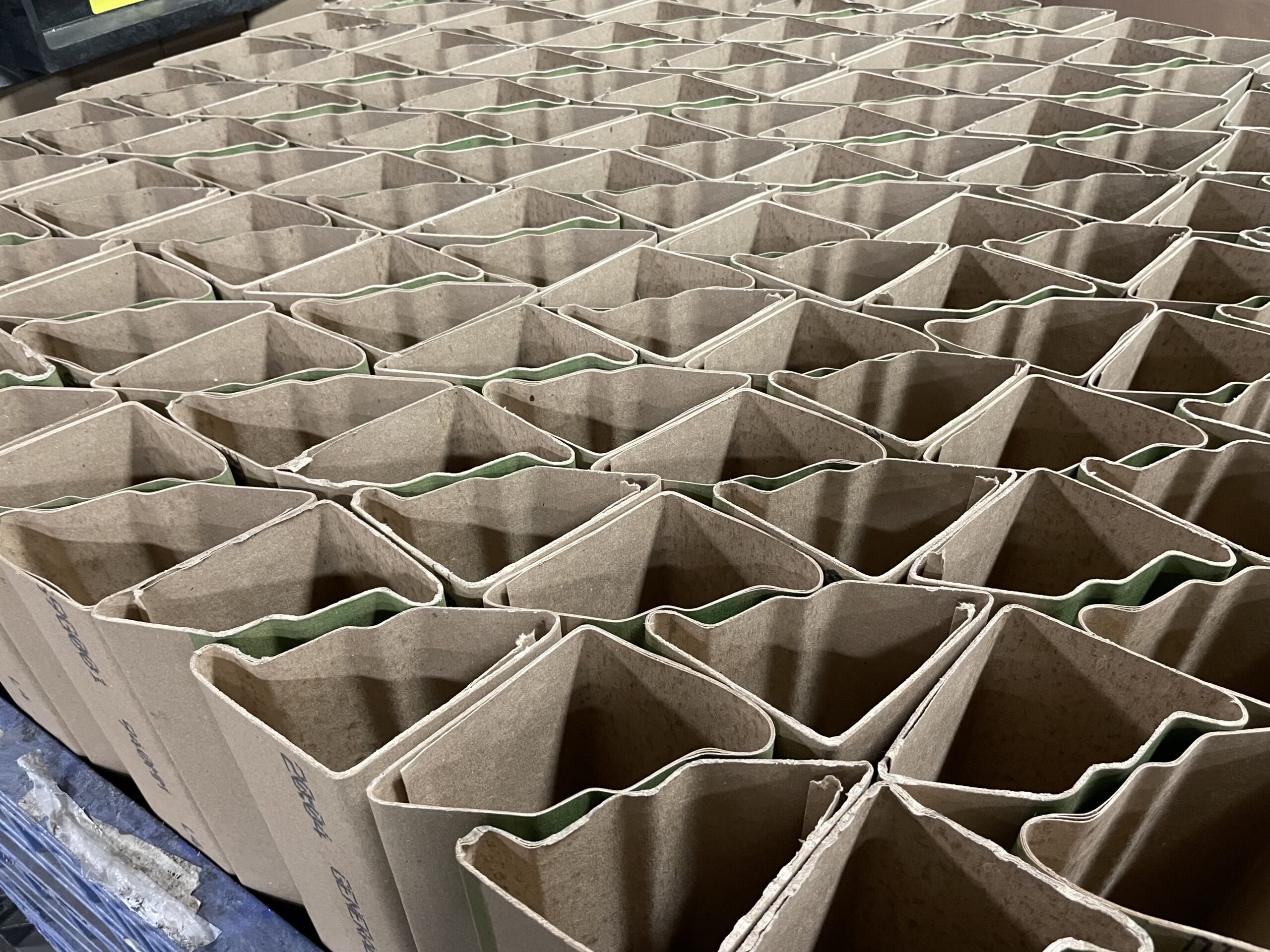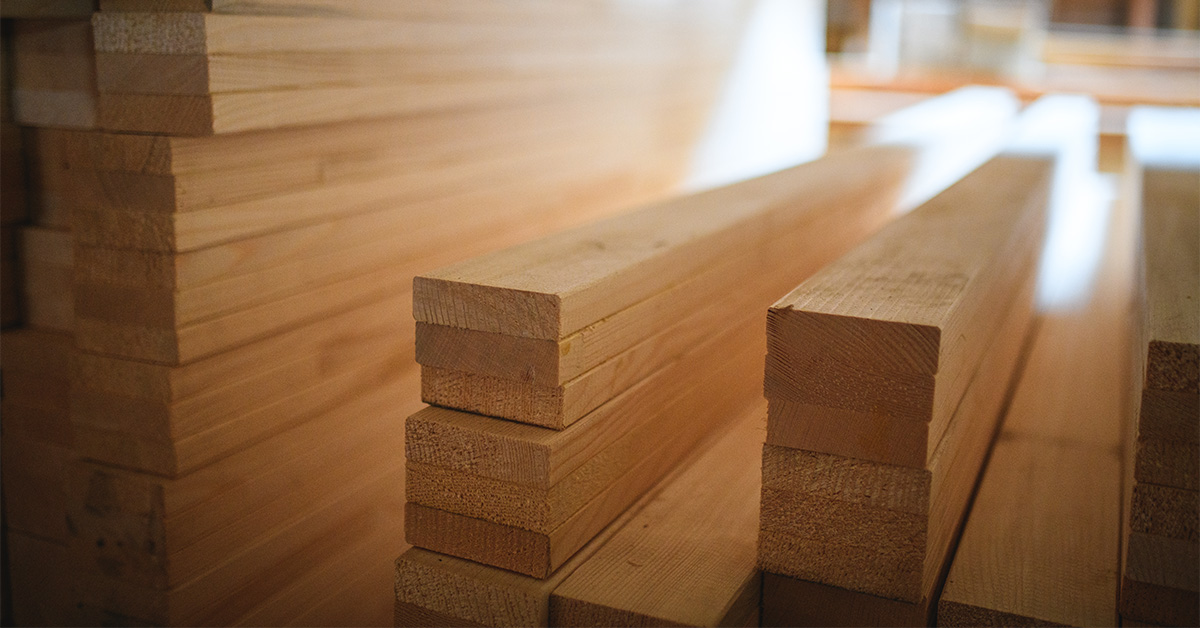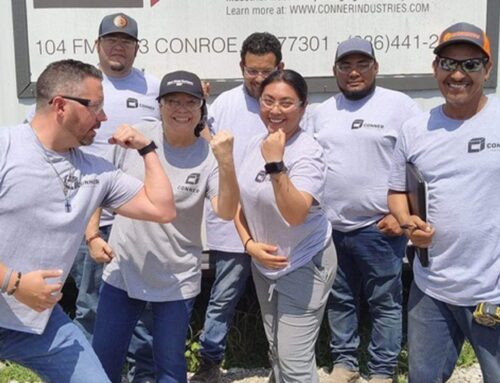Think of a time when you ordered something online and it came in a box that was bigger than the product itself. Was that product surrounded by anything? Most likely you opened the box to see bubble wrap, packing peanuts, or kraft paper. All those materials are technically dunnage.
Depending on your industry, dunnage may look very different for you. As a wood packaging company, we specialize in wood dunnage that prevents crates and pallets from moving while in transit. We also work with integrated packaging that protects the actual product within the crates and pallets to keep them from shifting inside of packaging.
Simply put, dunnage is any material that is used to protect a product from damage during transit. In this guide, we will discuss the various types of dunnage you can come across in manufacturing and the many benefits they can provide.
The Right Dunnage is Important
Dunnage is important for many reasons, but keeping products safe is the number one priority. Dunnage can only keep products safe if it is being used efficiently and effectively. Making sure you choose the right type of dunnage is extremely important.
It is important to have the right dunnage to fit your specific product. If dunnage is doing its job, then products are not shifting at any point during transit. When choosing dunnage, it is not only important to think about your product, but also the conditions it will be subjected to during transit.
For example, if a product is exposed to extreme heat or excessive vibration, then you must account for that with additional or different dunnage. Working with a supplier that can make custom dunnage and packaging is the best course of action to make sure that products are as safe as they can be.
The Types of Dunnage:
Plastic Dunnage Materials
Plastic is very versatile within the dunnage world. It can be used in many different forms that fit different products within different industries. Plastic dunnage is split into two categories solid dunnage and soft dunnage materials. Solid plastic dunnage can be great because it can be molded into exact sizes to fit a container.
Soft plastic dunnage materials can come in the form of bubble wrap, air pillows, foam wrap, or packing peanuts, to name a few. These are versatile materials that can be used in multiple ways to keep your products safe during transit. These can be especially good when transporting breakable products within pallets and crates.
At Conner, we utilize soft dunnage materials in our integrated packaging services. After working with our engineers and design teams, our customers will have the perfect fit for their wood packaging with the utilization of plastic dunnage when needed.
Paper Dunnage Materials
Paper dunnage is mostly used for lightweight cargo or as an extra cushion within wood packaging. Paper dunnage can include cardboard, kraft paper, or corrugated paper. These materials are lightweight, which helps to keep shipping costs low. They are generally easy to install and be used to stabilize products within containers or wood packaging.

Wood Dunnage
Wood dunnage is our specialty at Conner Industries and one of the most widely used dunnage materials for transportation on the market. Wood dunnage is affordable, recyclable, and can be ethically sourced. It is a great material for those trying to make a more economical choice with dunnage. It also has better insulation properties than other forms of dunnage and allows for air circulation in transit.
Wood dunnage is used to create space in shipments to prevent cargo from touching and shifting during transit. This will lower in-transit damage and the costs related to that. It can also be cut to exact dimensions that work best for your products and the wood packaging it is held in.
Wood dunnage is a more affordable option than other dunnage types. At Conner, we know the bottom-line matters to our customers, so we do everything in our power to keep costs low. Using dunnage helps to prevent unexpected costs from popping up, so you can keep the cost of transit as consistent as possible.
Benefits of Using Dunnage in Manufacturing
1. Damage Protection
The number one benefit of using dunnage in manufacturing is damage protection. There is no other way around it when you are trying to protect your products. Transit can never be guaranteed to be safe and smooth at every turn. That is where dunnage comes in.
Dunnage gives you the added reassurance of physical protection from products not slamming into each other. But also helps to absorb shock from incidents that you cannot always prepare for. Whether you are talking about shock and vibration in a truck or falls and impacts from the unloading process, dunnage is an extra layer of protection.
2. Protecting Your Profits
We stated above that using dunnage cuts down on the cost that can be related to in-transit damage. In-transit damage affects a lot of things within your manufacturing processes. In-transit damage can cost more than you think.
In-transit damage costs can be tied to product replacement, freight claims, customer satisfaction, reverse logistics, time-sensitive losses, labor costs, and many more. Money spent on durable and reliable dunnage will pay for itself over time because these issues are not having to be navigated as much.
3. Reducing Labor Costs
With proper dunnage, you will lower labor costs. Employees will not have to deal with receiving broken or damaged products. They also will be able to speed up the packaging process when the right dunnage is being utilized on the production line. Dunnage helps to ensure that every process is streamlined and protected.
Wrapping It All Up
Dunnage is an important part of the fulfillment and transportation process. It helps to ensure that products arrive safely and without damage. Working with the right supplier will make a world of difference. There is no need to guess what will work best when working with a supplier that has experience and expertise.
Conner Industries is a leading provider of industrial wood and packaging solutions, including pallets, crates, integrated packaging solutions, and dunnage. With over 40 years of experience, you can relax knowing that your products are in good hands. Wood dunnage is just one small part of the much bigger process of transporting products. Let us help you find the perfect packaging for your needs today!



![[PRESS RELEASE] Conner Industries Announces Major Guardian Packaging Expansion](https://conner.b-cdn.net/wp-content/uploads/2024/10/Guardian-Packaging-Expansion-500x383.jpg)
![[PRESS RELEASE] Conner Industries Announces Website Dedicated to Integrated Packaging Division](https://conner.b-cdn.net/wp-content/uploads/2024/05/Conner-Packaging-Blog-500x383.jpg)


